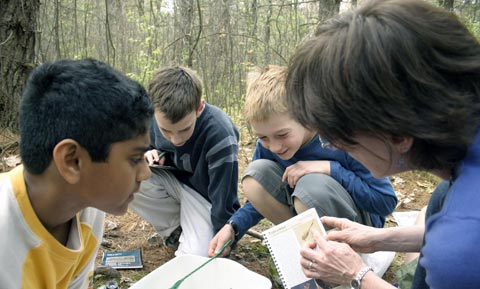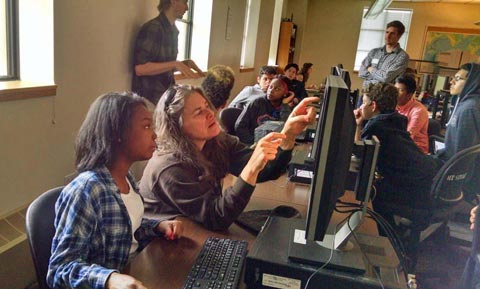
The largest and longest-lived ecological network in the United States, the Long-Term Ecological Research (LTER) Network provides the scientific expertise, research platforms, and long-term datasets necessary to document and analyze environmental change. The Network brings together a multidisciplinary group of more than 2000 scientists and graduate students. The twenty-six LTER sites encompass diverse ecosystems in the continental United States, Alaska, Antarctica and islands in the Caribbean and the Pacific—including deserts, estuaries, lakes, oceans, coral reefs, prairies, forests, alpine and Arctic tundra, urban areas, and production agriculture.
The mission of the Schoolyard Series is to engage children and their families in learning about the earth’s ecosystems, both locally and internationally, through narratives that reflect the dynamic research being conducted at the National Science Foundation’s Long-Term Ecological Research Sites.











